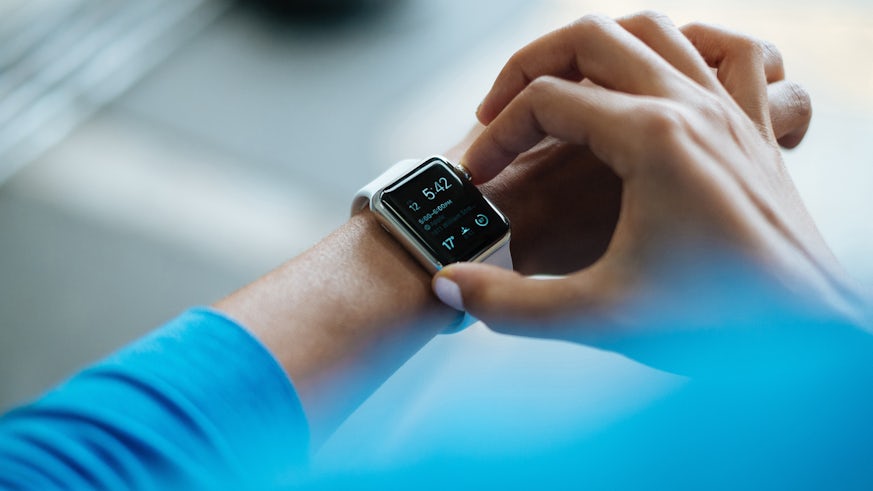Wearable well-being – can technology make us healthier?
29 August 2017

Can wearable technology make us well?
Does the simple act of strapping a monitor to our arm modify our behaviour? Do wearables bring long-term benefits to patients? Could these tiny devices provide doctors with vital information to reduce our risk of becoming unwell?
‘Doctor on Your Wrist’ brings together healthcare professionals and wearables specialists from companies including Garmin and Fitbit to explore the pros and cons of using devices with the power to change lives.
Hosted by Cardiff University's School of Medicine, the half-day event at the Life Sciences Hub Wales in Cardiff Bay brings guest speakers together to explore ways of improving patient care.
Dr Matt Morgan, the School’s Head of Research and Development, said: “We are currently running a project, funded by the Medical Research Council, to explore wearable tech and examine the ways it affects the behaviour of users.
“Our primary aim is to investigate whether data collected by consumer activity trackers correlates to Cardiopulmonary Exercise Testing, an expensive and time consuming but thorough technique currently used to assess patients prior to major surgery. We are also interested in DNA testing for so-called 'fitness genes' and how these correspond to health and surgical outcomes.”

"If the use of activity trackers can give us accurate indicators of a patient’s fitness for surgery, it could vastly increase the number of patients able to undergo assessment and reduce strain on NHS services."
Dr Nathan Riddell, a foundation doctor with an interest in health innovation, said: “The rapidly expanding world of wearable technology has clear potential to improve patient care by providing free living information to doctors and other healthcare professionals. However, its provision and use by healthcare services has yet to be optimised.”
“A growing body of evidence suggests we find it very difficult to accurately self-report our own activity levels. However, the simple act of wearing tracking devices alone has been shown to improve patients’ awareness of their own fitness.”
Among the speakers will be Dr Dan Reardon, a Cardiff Medical School graduate and CEO of global health company Fitness Genes. The company analyses a client’s DNA and lifestyle data to produce a genetically tailored workout and dietary plan to help them get fitter.
Dr Reardon, based in California, said: “The big question for healthcare practitioners worldwide is: can wearable technology change long-term behaviours, motivate patients, and help us all lead healthier lives? And, if so, how can healthcare practitioners establish frameworks and networks that support the use of wearables in the management of individual patients’ welfare?”
The free half-day event (lunch included) is open to healthcare practitioners, wearables specialists and academics. It takes place between 10:00 and 15:00 on 20 September. View the event page to read more, register and book a place.
Share this story
Learn how our cutting-edge research, technology transfer, business development and student enterprise drive our vision.



